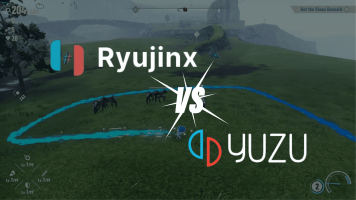Background Information
- SuperSega FPGA Console: The SuperSega FPGA Console is a proposed gaming console that aims to replicate classic Sega games using FPGA (Field-Programmable Gate Array) technology. FPGA technology allows for hardware-level emulation, which can potentially offer a more authentic gaming experience compared to software emulation. The console is marketed as a way to preserve and enjoy retro Sega games with modern enhancements.
Community Reactions
- Skepticism and Criticism:
- Lack of Transparency: One of the primary concerns is the lack of detailed information about the project's development progress, funding, and team credentials. Many potential backers feel that the project lacks transparency, which raises red flags about its legitimacy.
- Unrealistic Promises: Critics argue that the promises made by the developers, such as perfect emulation and extensive game library support, seem overly ambitious given the project's timeline and resources.
- Previous Failed Projects: Some community members point to similar projects that have failed in the past, which contributes to the skepticism surrounding the SuperSega FPGA Console.
Evidence and Arguments
- Claims of a Scam:
- Funding Concerns: There are allegations that the project is primarily a money-making scheme, with little intention of delivering a final product. This is often based on the project's reliance on crowdfunding without clear accountability.
- Lack of Prototypes: Critics highlight the absence of working prototypes or demonstrations, which are typically expected in legitimate hardware projects to showcase feasibility and progress.
- Inconsistent Communication: The project's communication with backers and the public has been described as inconsistent and vague, further fueling doubts about its authenticity.
Counterarguments
- Defenses by Supporters:
- Innovative Potential: Supporters argue that the use of FPGA technology is a legitimate and innovative approach to retro gaming, which could offer significant advantages over traditional emulation.
- Development Challenges: Some defenders suggest that the delays and lack of prototypes are due to the inherent challenges of developing new hardware, rather than an indication of fraudulent intent.
- Community Engagement: Proponents may point to any efforts by the developers to engage with the community, such as updates or Q&A sessions, as evidence of their commitment to the project.
Conclusion
- Assessment of Skepticism:
- The skepticism surrounding the SuperSega FPGA Console appears to be largely justified based on the available information. The lack of transparency, unrealistic promises, and absence of tangible progress are significant concerns that align with common indicators of dubious projects.
- However, it's important to consider the potential for genuine challenges in hardware development, which can sometimes lead to misunderstandings about a project's legitimacy.
- Ultimately, potential backers should exercise caution and seek more concrete evidence of progress and accountability before committing financial support to the project. The balance between innovation and skepticism is delicate, and further transparency from the developers could help alleviate some of the community's concerns.

"The Project Is A Complete Scam" - The Internet Isn't Convinced By The SuperSega FPGA Console
"DO NOT GIVE THESE PEOPLE ANY MONEY"





